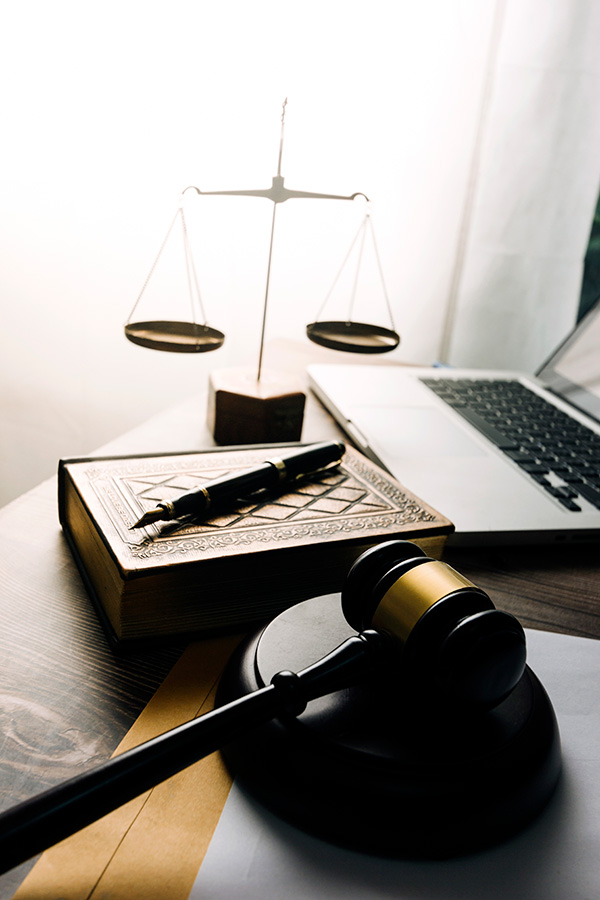Bail Hearing Lawyers
Contact us immediately! Your loved ones deserve to be released as soon as possible!
Do not wait until you are in custody to contact a lawyer. It is best to contact us before you turn yourself in, so that an experienced Bail Hearing Lawyer can start making arrangements before you ever have to step into police custody.

Your Best Defence Starts With a Successful Bail Hearing
If you or a loved one has been arrested and charged with a criminal offence, the first step in the case is getting bail. The Bail Hearing is the crucial first step in every criminal case, and can set the tone for how a case moves forward. The key to a successful bail hearing, is having an experienced bail hearing lawyer.
At Kraska Law, Robert has conducted thousands of Bail Hearings, as a Defence lawyer, a Federal Crown Attorney, and a Provincial Crown Attorney. Having conducted Bail Hearings from all these perspectives, Robert has carefully honed his skills and is able to anticipate any obstacles that may arise, even before they are evident. It is Robert’s extensive and varied experience that will ensure that you or your loved ones do not stay in jail a moment longer than they must.
In 2002 the Supreme Court of Canada stated: “Liberty lost is never regained and can never be fully compensated for; therefore, where the potential exists for the loss of freedom for even a day, we, as a free and democratic society, must place the highest emphasis on ensuring that our system of justice minimizes the chances of an unwarranted denial of liberty” (R. v. Hall (2002), 167 C.C.C. (3d) 449).
It is clear that Canadian society places a significant amount of weight on one’s liberty. With an experienced Bail Hearing Lawyer like Robert representing you, you can rest assured that you are being represented by an experienced professional who truly understands the intricacies of Bail Hearing Law. At Kraska Law we will strive to protect your liberty.
At Kraska Law, when it is a question of bail, we offer:
- Experience
- 24/7 Availability
- Free Consultations
- Flexible Payment Plans
Release from the Police Station
It is a common misconception that the bail hearing begins and takes place in the Courtroom, but this is not the case. Your first chance for release on bail starts at the police station. At Kraska Law we will ensure that an experienced bail lawyer will be representing every step of the way, starting from the moment you are charged. Our goal is to get you released on bail as soon as possible. We will not wait until you are taken into a courtroom, we will begin our negotiations with the police at the station, to have you released directly from the police station.
Release from custody — arrest without warrant
498 (1) Subject to subsection (1.1), if a person has been arrested without warrant for an offence, other than one listed in section 469, and has not been taken before a justice or released from custody under any other provision of this Part, a peace officer shall, as soon as practicable, release the person, if
(a) the peace officer intends to compel the person’s appearance by way of summons;
(b) the peace officer issues an appearance notice to the person; or
(c) the person gives an undertaking to the peace officer.
In many cases, the police have the authority to release a person who has been charged with an offence directly from the police station. An experienced bail lawyer will negotiate with the police to obtain your release from the station. If it is not possible to obtain a release at this early stage, then the case would proceed to a bail hearing in Court.

What is a Bail Hearing?
The bail stage is a crucial point in any case, it decides whether you will be released to go home, or whether you will have to stay in jail until the end of your case. It is important to have an experienced and reliable Bail Hearing Lawyer because you only get one chance at a bail hearing. Whether or not a person is released on bail can determine the course of the rest of the case. So, because you are only entitled to one bail hearing, it is important to get it right the first time. At Kraska Law, an experienced bail hearing lawyer will be with you every step of the way, from the very beginning, to ensure your release from custody at the earliest opportunity.
Every person who is arrested for an offence has rights. In Canada those rights are enshrined within the Canadian Charter of Rights and Freedoms, a part of our Constitution. There are two main rights that pertain to bail, and they are contained in Section 11 of the Canadian Charter of Rights and Freedoms. Those rights are:
11 Any person charged with an offence has the right
[…]
(d) to be presumed innocent until proven guilty according to law in a fair and public hearing by an independent and impartial tribunal;
[… and …]
(e) not to be denied reasonable bail without just cause;
These rights apply to everyone in Canada, regardless of whether that person is a citizen, or what their status in the country may be. The police have a duty to comply with those rights. An experienced bail hearing lawyer will ensure that the police uphold your rights, and that the police do not breach those rights.
The Criminal Code of Canada requires that when the police arrest someone they must bring that person before a Court for a bail hearing within 24 hours, if the arrested person is not being released from the police station.
503 (1) Subject to the other provisions of this section, a peace officer who arrests a person with or without warrant and who has not released the person under any other provision under this Part shall, in accordance with the following paragraphs, cause the person to be taken before a justice to be dealt with according to law:
(a) if a justice is available within a period of 24 hours after the person has been arrested by the peace officer, the person shall be taken before a justice without unreasonable delay and in any event within that period; and
(b) if a justice is not available within a period of 24 hours after the person has been arrested by the peace officer, the person shall be taken before a justice as soon as possible.
This is not optional, and the police must bring anyone who is held for bail before a Court within 24 hours. You must be given an opportunity to seek bail within that period of time.

The Bail Hearing Process
Once a person charged with an offence arrives in Court, there several different factors that can affect how a bail hearing proceeds. Of all those factors the main two that will significantly impact how a bail hearing proceeds are:
- Is it a Crown Onus or Defence Onus Bail Hearing?
- Is the Crown Consenting to Release or Seeking Detention?
With respect to the first factor, whether this is a Crown or Defence Onus Bail Hearing is a complicated way of asking is this a situation where the Crown must prove the person should stay in jail? Or is this a situation where the person must prove why they should be released. The Criminal Code of Canada explains the different factors that determine each scenario. Generally, bail hearings are all governed by section 515 of the Criminal Code:
515 (1) Subject to this section, when an accused who is charged with an offence other than an offence listed in section 469 is taken before a justice, the justice shall, unless a plea of guilty by the accused is accepted, make a release order in respect of that offence, without conditions, unless the prosecutor, having been given a reasonable opportunity to do so, shows cause, in respect of that offence, why the detention of the accused in custody is justified or why an order under any other provision of this section should be made.
This means that the general rule with respect to bails is that the prosecutor must convince the Court as to why the person who is charged with an offence should be kept in jail. This means that the general rule means that you do not have to prove why you should be released, the prosecutor needs to prove why you should stay in jail. However, there are many exceptions to this rule. Where one of the exceptions applies, the burden shifts to the accused person to prove why they should be released. The exceptions are set out later in the same section. This first factor, as it related to who has the burden of proof, is not something that can be negotiated or changed through legal argument. The rules are applied to this scenario, and then this becomes the starting point from which the bail hearing moves forward.
With respect to the second main factor of the bail hearing, whether or not the Crown Attorney is consenting to release, this is a factor that can be changed. The decision to consent or seek detention is not set in stone, it is not written in law. This is a decision that the Crown Attorney makes based on the factors present in the bail hearing materials they receive from the police. If the Crown Attorney is not agreeing to a bail release, they must justify it on one of three grounds:
- The Primary Ground for Detention: The accused will not attend Court as required.
- The Secondary Ground for Detention: The accused’s detention is required to stop them from reoffending, or to ensure the safety of the public.
- The Tertiary Ground for Detention: The accused’s detention is required to maintain public confidence in the administration of justice.
As experienced bail hearing lawyers, we will negotiate with the Crown Attorney, seeking to convince them to consent to your release.
Preparing the Sureties
Whether or not the Crown Attorney is consenting to your release, if it is a release that requires sureties, we will ensure that the sureties are prepared and ready to testify in Court. A surety is someone who acts as the supervisor for the person who is being released on bail. When someone proposes themselves as a surety they take on certain obligations that they owe to the Court. An experienced bail hearing lawyer will ensure that your sureties are prepared and ready to testify at the bail hearing. There are three main obligations that a surety undertakes:
- To ensure that the person charges with the offences comes to Court;
- To ensure that the person charged with the offences follows the conditions of their bail release; and
- To call the police if the person charged with the offences breaches a condition of the bail.
The easiest way to remember these three obligations is to think of them as the three C’s: Court, Conditions, and Cops. To ensure that a surety takes their obligations seriously, the Court requires that the surety pledge an amount of money for the bail. This can either be, with or without, deposit. The bail becomes a contract between the surety and the Court. If a surety fails to uphold any one or more of the three obligations listed above, the Court can come after the surety for some or all of the money they have signed for. Becoming a surety is a serious undertaking, and a Kraska Law, we will ensure that you have an experienced bail hearing lawyer by your side to prepare you and your surety, guide you through the process and make sure we put our best foot forward at the bail hearing.

Constructing a Reasonable and Livable Bail
There are many different forms of bail release. At the lower end, are the very lenient forms of release, without any conditions, and simply require you to attend Court. At the high end you have a house arrest bail with sureties, and strict conditions. There are also a number of steps in between. These steps are often referred to as the bail ladder, as you progress up the ladder each form of release becomes increasingly restrictive, until there is nowhere else to go. Before a Court can deny somebody bail, they must consider each rung on that ladder and decide that each level of release is unsuitable, in the circumstances.
The various levels of bail release are:
- Undertaking without conditions.
- Undertaking with conditions.
- Release order without sureties.
- Release order with Bail Program supervision.
- Release order with non-residential sureties.
- Release order with residential sureties.
At each level of release, conditions can be imposed to fashion a release plan specific to your circumstances. As bail hearing lawyers, it is our job to ensure that the conditions of your bail are reasonable and manageable, so that you can actually live while on bail. The terms of the bail should be the least restrictive required. This brings us back to the opening comments about liberty, a bail release should not limit your liberty more than is necessary, and it is your bail hearing lawyer’s job to make sure that happens.
Contact us immediately to make arrangements for your bail hearing.
